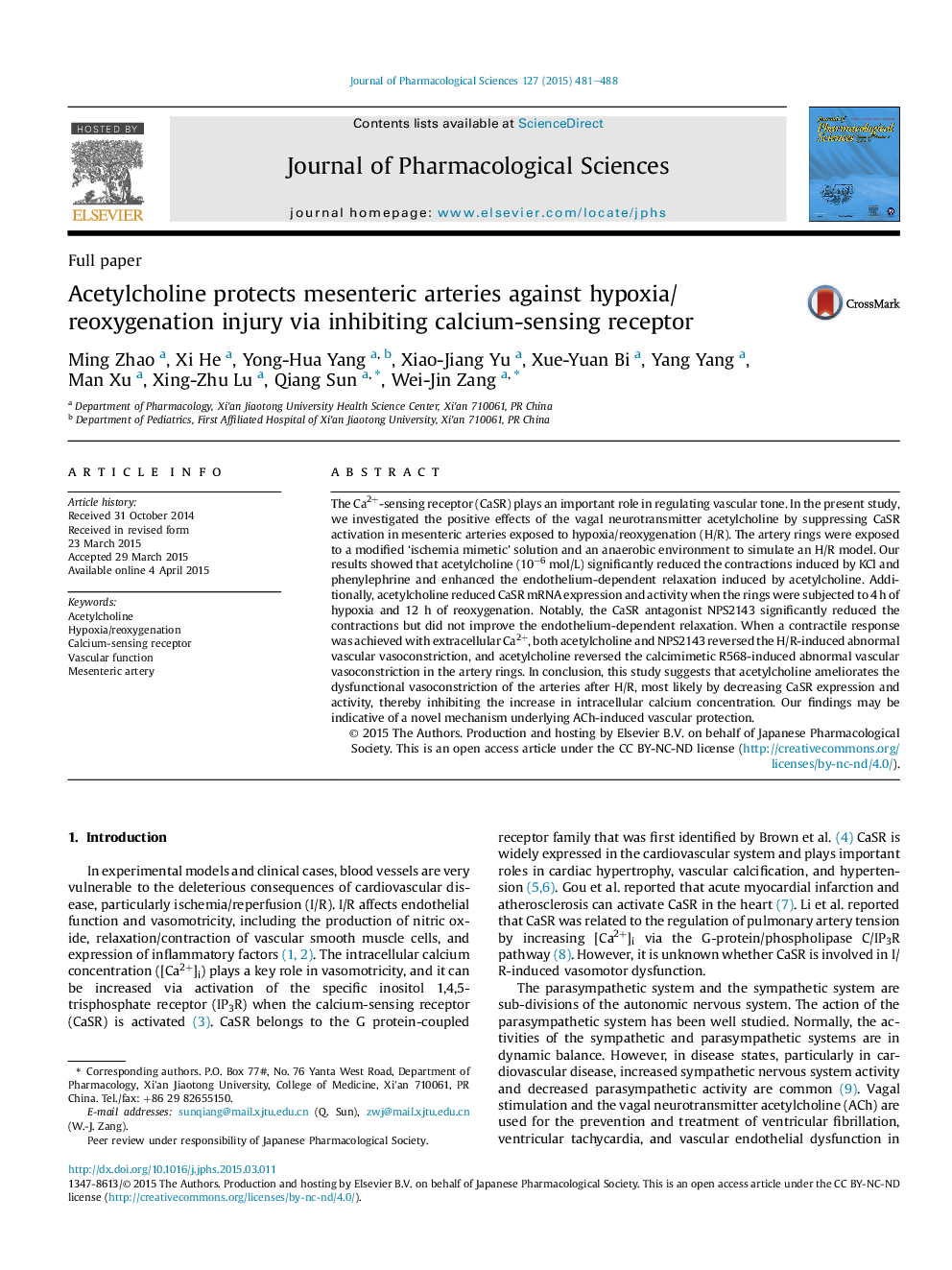| Article ID | Journal | Published Year | Pages | File Type |
|---|---|---|---|---|
| 2548872 | Journal of Pharmacological Sciences | 2015 | 8 Pages |
The Ca2+-sensing receptor (CaSR) plays an important role in regulating vascular tone. In the present study, we investigated the positive effects of the vagal neurotransmitter acetylcholine by suppressing CaSR activation in mesenteric arteries exposed to hypoxia/reoxygenation (H/R). The artery rings were exposed to a modified ‘ischemia mimetic’ solution and an anaerobic environment to simulate an H/R model. Our results showed that acetylcholine (10−6 mol/L) significantly reduced the contractions induced by KCl and phenylephrine and enhanced the endothelium-dependent relaxation induced by acetylcholine. Additionally, acetylcholine reduced CaSR mRNA expression and activity when the rings were subjected to 4 h of hypoxia and 12 h of reoxygenation. Notably, the CaSR antagonist NPS2143 significantly reduced the contractions but did not improve the endothelium-dependent relaxation. When a contractile response was achieved with extracellular Ca2+, both acetylcholine and NPS2143 reversed the H/R-induced abnormal vascular vasoconstriction, and acetylcholine reversed the calcimimetic R568-induced abnormal vascular vasoconstriction in the artery rings. In conclusion, this study suggests that acetylcholine ameliorates the dysfunctional vasoconstriction of the arteries after H/R, most likely by decreasing CaSR expression and activity, thereby inhibiting the increase in intracellular calcium concentration. Our findings may be indicative of a novel mechanism underlying ACh-induced vascular protection.
